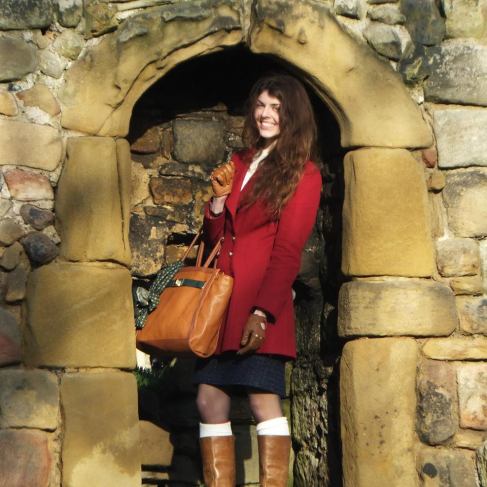On Tuesday 21 January, Julia Irmis will present her paper ‘Early Medieval Bloodfeud: Diffusion of Practice and Transformation of Society’.
1. So Julia, tell us about yourself. Where are you from?
I’m from a suburb of Chicago in Illinois. I came to Durham in 2010 to do my undergrad in English Literature and History. Apart from history and English, my other loves in life are basketball, baking, and Beyonce.
2. How did you come to Durham?
I honestly chose Durham completely on a whim – I needed a fifth UCAS choice, did a quick google, and thought, ‘There looks good’. It was only after I’d finished applying and did a bit more digging that I realised how wonderful a place and university Durham is, and how badly I wanted to be there.
3. So where did you consider instead of Durham?
York, Kent, Nottingham, Birmingham. I obviously chose the ones I knew. There isn’t much UK representation in the US. Kent bothered to show up to a uni fair, so I applied there.
4. What’s your favourite thing about Durham?
That’s rather difficult. While it’s easily the most stereotypical answer, I can never fully get over the cathedral, especially considering it houses Bede, Cuthbert, and Oswald. It’s an early medievalist’s dream. I also recall first arriving in Durham and being completely taken by the cobblestones. I had never seen entire roads of cobblestones before and thought it so lovely.
5. You’re studying the MA in Medieval and Renaissance Studies. That’s quite a broad title! What exactly are you working on?
My main focus is on the early medieval period, with an especial interest in conversion and Christianisation, the Merovingians, Anglo-Saxons, and barbarian identity.
6. What led you to pursue this area?
Before coming to Durham, I had never studied the medieval period in any real capacity. In the US, world history seems to start about the time of the Black Death. I came assuming I would become some sort of Tudor historian/Shakespeare critic, but after taking the module ‘Birth of Western Society’ in my first year with Dr. Clay and Professor Gameson, and ‘Age of Chivalry’ I found I had been 1000 years too late for far too long. Gregory of Tours’ ‘Ten Histories’, Bede, and Icelandic sagas and myths had a lot to do with that.
7. Where do you see yourself next year? In ten years’ time?
Next year I hope to be pursuing a PhD in medieval history, specifically looking at barbarian law-codes and what they can tell us about barbarian identity. In ten years I hope to be doing about the same, contributing to the academic world in any capacity.
8. If you weren’t in academia, what would you be doing?
That is a very good question. I have always assumed I would be a teacher of some sort, but I’m not sure I would be patient enough with people who didn’t want to learn. I suppose I could see myself being a museum curator or working at a historical site in some capacity. I can’t really ever imagine making a clean break from history and/or English.
Thanks, Julia. See you all on Tuesday.

